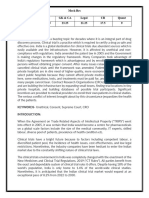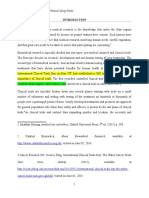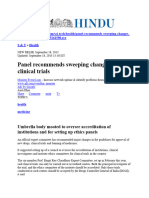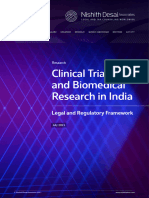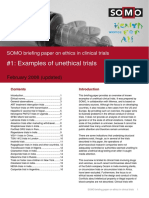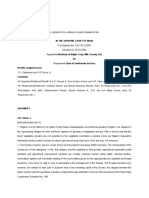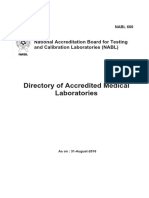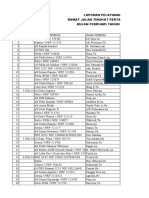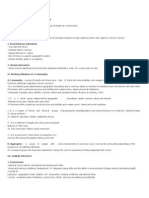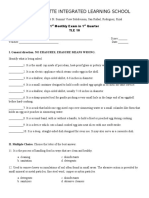0% found this document useful (0 votes)
60 views16 pagesMLE
India has become a preferred location for global clinical trials due to lower costs and rapid recruitment rates, but concerns over ethical standards and informed consent have emerged, particularly following the Swasthya Adhikar Manch v. Union of India case. The Supreme Court's ruling led to significant regulatory reforms, including stricter guidelines, enhanced oversight, and improved transparency in clinical trials. New regulations were established to protect participants' rights and ensure ethical conduct in clinical research, culminating in the Drugs and Clinical Trials Rules, 2019.
Uploaded by
IshitaCopyright
© © All Rights Reserved
We take content rights seriously. If you suspect this is your content, claim it here.
Available Formats
Download as DOCX, PDF, TXT or read online on Scribd
0% found this document useful (0 votes)
60 views16 pagesMLE
India has become a preferred location for global clinical trials due to lower costs and rapid recruitment rates, but concerns over ethical standards and informed consent have emerged, particularly following the Swasthya Adhikar Manch v. Union of India case. The Supreme Court's ruling led to significant regulatory reforms, including stricter guidelines, enhanced oversight, and improved transparency in clinical trials. New regulations were established to protect participants' rights and ensure ethical conduct in clinical research, culminating in the Drugs and Clinical Trials Rules, 2019.
Uploaded by
IshitaCopyright
© © All Rights Reserved
We take content rights seriously. If you suspect this is your content, claim it here.
Available Formats
Download as DOCX, PDF, TXT or read online on Scribd
/ 16








